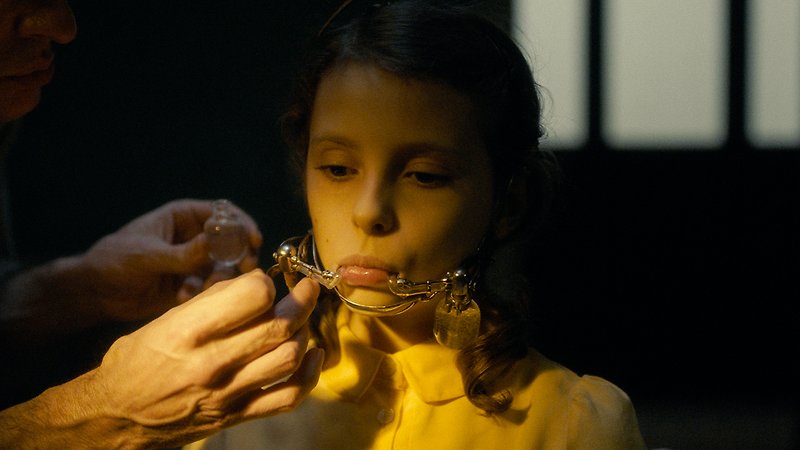French director Lucile Hadžihalilović creates an enigmatic and melancholic world that seems to exist in the centre of a Venn diagram of Lynch’s Eraserhead and Cronenberg’s Spider.

The threat of violence festers in the background, as the eldritch disquiet of Hadžihalilović’s imagery compounds itself without the catharsis of traditional scares.
Screened as part of NZIFF 2021
Earwig 2021
| Nov 14 | | ||
| Nov 16 | |
The prior works of director Lucile Hadžihalilović, Innocence and Evolution, showcased her as a unique voice in the cinematic wilderness of xeroxes and copycats. Her latest, Earwig, has echoes of her previous films, intruding on similar territory of isolation, adolescence and mysterious individuals who wield some control of proceedings. Like cine-magician Lynch, Hadžihalilović sees and hears the world differently and finds ugly beauty in the quiet and dark recesses of everyday existence.
Set somewhere in post-WWII Europe, Earwig invites us to peer into the gothic habitat of Albert who tends to the very young Mia on a daily basis. Each day, like clockwork, Albert fits a set of intricate ice dentures on Mia – made from her own carefully extracted saliva, which is then frozen and cast into a new set of dentures. Mia is kept away from sunlight as much as possible, living a puzzling, trapped existence. Their cyclical routine includes silent dinners and spying on each other. Albert is guided by unseen figures that suddenly tell him to ready Mia for a trip to see someone important.
Hypnotic and at times confounding in its opaqueness and determination not to spell out everything, Earwig is a rare example of evoking that nightmarish quality of feeling like a peeping-tom, privy to someone else’s dark dreams. — AT
“Like a good surgeon, [Hadžihalilović] works at her own rhythm, administering gore and violence with extreme caution, killing us but doing it ever so softly. The knife cuts carefully but it cuts deep.” — Jordan Mintzer, Hollywood Reporter